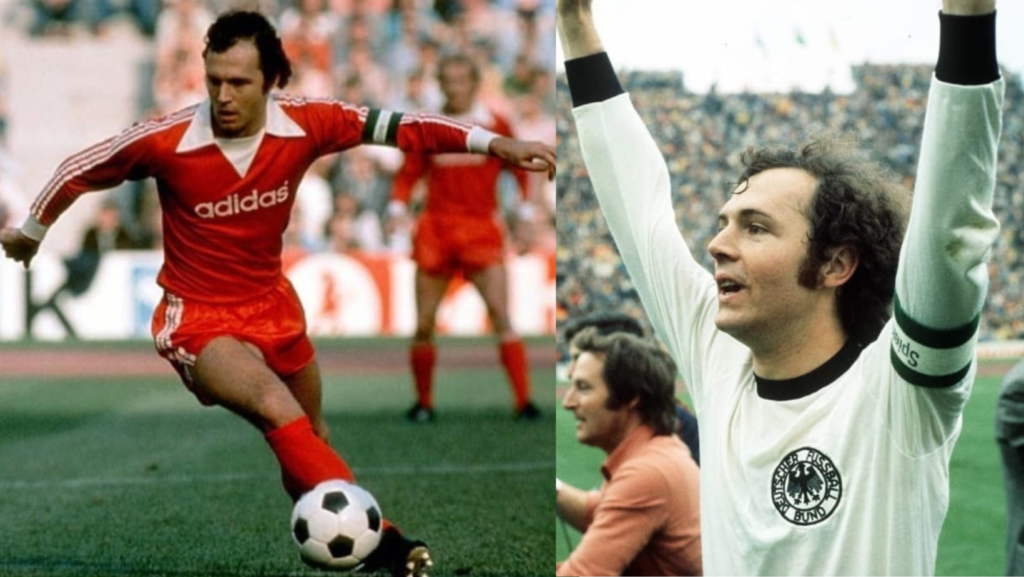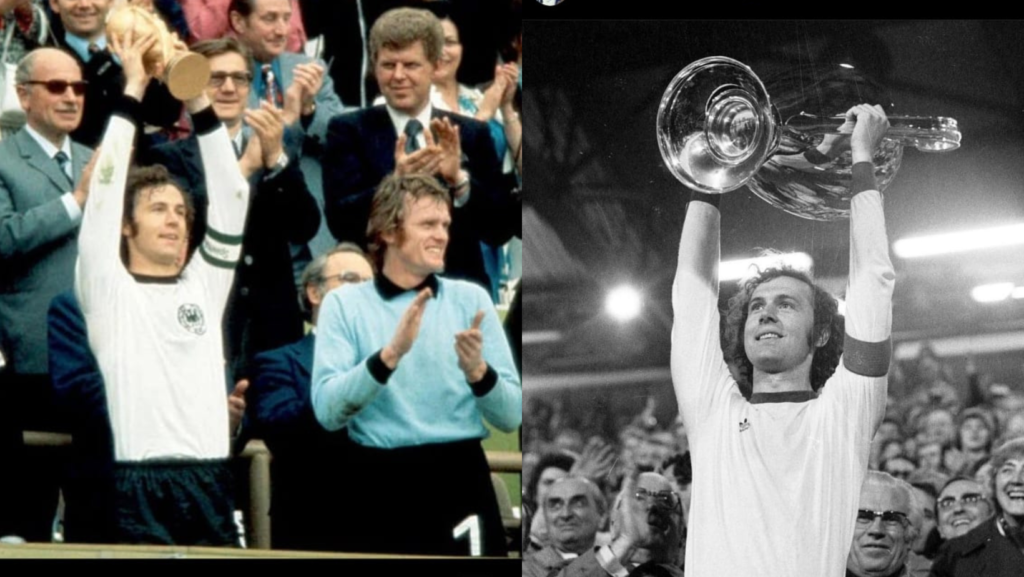
It remains one of the most iconic images in football history – Franz Beckenbauer striding across the turf at the Azteca Stadium in Mexico City, arm in a sling. In what would later be called the Game of the Century, West Germany had already made the two available substitutions when Beckenbauer dislocated his shoulder. For the remaining 50 minutes, including half an hour of extra time, he braved excruciating pain while defending and organising with the composure that he was famed for. Italy may have prevailed 4-3 in a titanic tussle, but that picture of Beckenbauer has become synonymous with courageous leadership.
Mario Zagallo, before him, and Didier Deschamps, nearly three decades after, would also win World Cups as both player and manager. But comparing the three is a futile exercise. Zagallo, as good a player as he was, was part of the first legendary Brazilian side. There was so much talent in the ranks and on the fringes that any of three or four men could have replaced him without any noticeable difference in quality.
Deschamps, derided as a ‘water carrier’ by Eric Cantona, performed a vital role as defensive midfielder, but he too was far from being the most important player in the XI. Not so Beckenbauer. First as a midfielder of thrilling quality – good enough to be voted Best Young Player at the 1966 World Cup – and then as someone who revolutionised the sweeper/libero role, the man that millions of admirers referred to as Kaiser was the heartbeat of some of the greatest club and national teams the world has seen.
🚨Franz Beckenbauer, Kaiser to millions, passed away earlier today at the age of 78. World Cup winner with West Germany as captain (1974) and coach (1990), and heartbeat of a legendary Bayern Munich side. RIP. pic.twitter.com/NZpEk4ZQIe
— RevSportz (@RevSportz) January 8, 2024
In a sense, there is great irony in Beckenbauer passing away at the beginning of yet another transfer window. In an age when Harry Maguire commands a transfer fee in excess of 80 million pounds, what might Beckenbauer have been worth? The modern player who most resembles him – Virgil van Dijk – cost Liverpool 75 million pounds when he became one of the most transformative signings in league history.
Like Beckenbauer, van Dijk glides across the grass, leaving barely a trace. The positioning is usually faultless. But unlike van Dijk, Beckenbauer was also a scorer of vital goals – whether in World Cups or at club level. He had a rocket of a shot, and a happy knack of ghosting into space from midfield or even further back.

When it comes to the World Cup that Beckenbauer lifted as captain in 1974, it’s fashionable to talk of their beaten foes that day – the Netherlands of Johan Cruyff and Total Football. There’s little doubt that West Germany had more than a point to prove that afternoon in Munich. Two years earlier, a magnificent German side had total football-ed their way to the European Championship. Unfortunately, because it wasn’t televised worldwide, they never got the acclaim the Dutch did. But the spine of that team – with Sepp Maier in goal, Beckenbauer as libero, Gunter Netzer pulling the strings in midfield, and Gerd Muller firing in the goals – was every bit as good as the Dutch.
A generation later, after a hat-trick of European Cups with Bayern Munich and three NASL titles with New York Cosmos to close out his career, Beckenbauer took on the task of revitalising the national team that had failed to make the semis at Euro 1984. Only the sublime skills of Diego Maradona thwarted Beckenbauer and West Germany in the heat and altitude of Mexico City (1986), but Andreas Brehme’s penalty in the Stadio Olimpico four years later would bring a measure of revenge.
Beckenbauer would go on to win a UEFA Cup as well, with his beloved Bayern, before moving into a backroom role. With Germany, he was very much the face of the 2006 World Cup, though the final few years of his life were blighted by allegations of fraud and financial impropriety relating to that tournament.
কিংবদন্তি জার্মান ফুটবলার Franz Beckenbauer এর মৃত্যুতে শোকস্তব্ধ গোটা ফুটবল জগৎ!@debasissen #FranzBeckenbauer pic.twitter.com/8Ub9Ab95Jx
— RevSportz Bangla (@RevSportzBangla) January 9, 2024
When all is said and done though, it’s the memory of the matchless player he was that will endure. Born in a working-class family in a Germany ravaged by war, he grew up dreaming of emulating Fritz Walter and playing for 1860 Munich. Instead, it was across town that he found his football home. Until the Beckenbauer years, Bayern hadn’t even won a German title. These days, the club and German football are synonymous.
Elias Figueroa, Franco Baresi, Rio Ferdinand, Alessandro Nesta – over the years, many centre-backs apart from van Dijk have been compared to Beckenbauer, either for their skill, composure on the ball or leadership qualities. But not one of them was the complete package. Beckenbauer was, one of a kind. Irreplaceable.
For All Sports Updates: CLICK HERE



